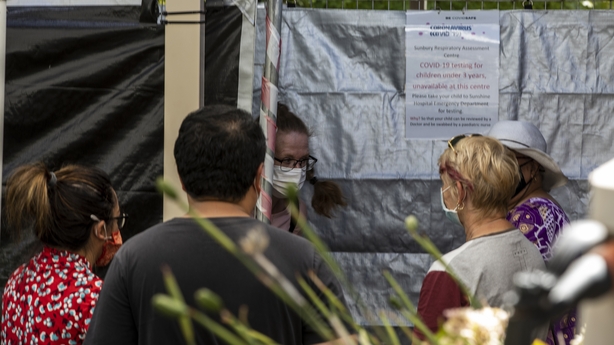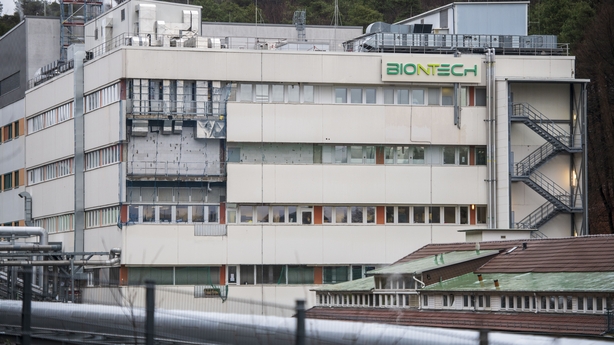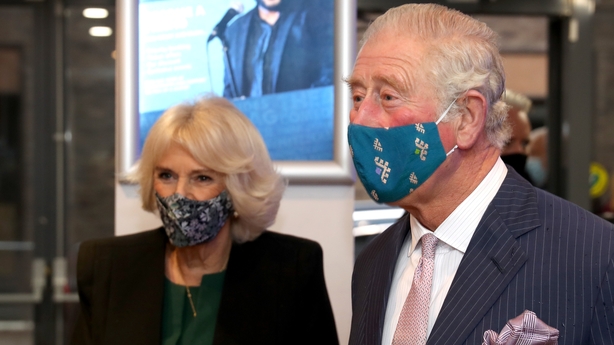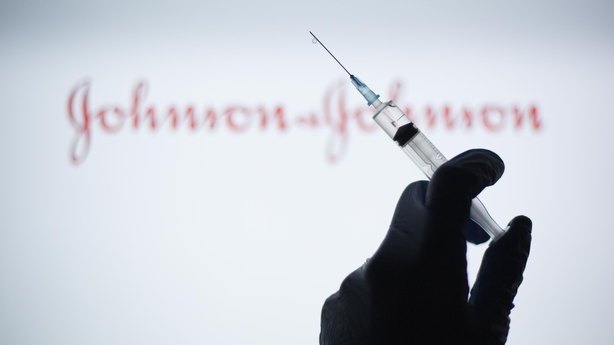New coronavirus variants are forcing Australia and New Zealand to rethink already-stringent quarantine rules for overseas visitors, even as their systems are replicated around the world.
Officials in Australia's Victoria state became the latest to warn that the spread of the mutations first detected in the UK, Brazil and South Africa mean its 14-day mandatory quarantine must be toughened.
"These hyper infectious strains are proving very difficult to contain," Victoria state premier Dan Andrews said, signalling coming reforms and announcing the snap closure of a Melbourne quarantine hotel at the centre of a new leak into the community.
"We all have to acknowledge that quarantine and the public health response today must be, by necessity, different than it was a month ago, six months ago," he said.
Health authorities in both Australia and New Zealand this week launched full reviews of quarantine facilities and procedures.
Proposals range from developing outback quarantine centres to testing arrivals more often and for longer.
Since the beginning of the pandemic, around 320,000 travellers have been picked up at Australian and New Zealand ports and airports, brought to quarantine hotels and confined to their rooms for 14 days.
The systems have contained thousands of cases, helping both countries remain largely free of Covid-19.
But in both Australia and New Zealand there is growing concern about the durability of the protocol.
As infections worldwide topped 100 million, the number of people arriving with the virus has increased.
New Zealand reported today that it had detected the virus in travellers from Germany, Tanzania and the United Arab Emirates.
Authorities are also seeing more people arriving with traces of old infections, making it more difficult to sort those with active infections from others.
But the most acute emerging problem is the rise of visitors with more virulent strains - reaching 105 already in Australia - with some infections spreading to hotel workers, transport staff and other quarantined travellers.
Several times in recent months the virus has jumped from hotels to the community, forcing millions of residents in Auckland, Brisbane, Melbourne and Perth into snap lockdowns.

In Victoria, almost 1,000 staff from three outbreak hotels are currently in quarantine themselves.
"It's well and truly time to move quarantine to remote locations, to reduce the risk of transmission into dense urban areas," said Adrian Esterman, an expert in biostatistics and epidemiology at the University of South Australia.
Australia has already identified three remote locations that could be adapted to handle quarantine arrivals -- including an air force base and an offshore immigration detention centre.
The country's chief medical officer, Paul Kelly, has warned that placing facilities in remote locations under federal control was not without risk.
"One of the most risky times of transmission during ... hotel quarantine is actually the transport from the airport to the actual facility. And so, the longer that is, the more risk there is," he said.
BioNTech starts vaccine production at new German site
German Covid-19 vaccine maker BioNTech said it has started production at its new facility in Marburg, expected to significantly boost the EU's vaccine supply.
"We have started the first step of vaccine production in our production facility in Marburg," the company said in a statement.
The factory, whose launch was fast-tracked by German authorities, will produce mRNA, the active ingredient in BioNTech's vaccine developed with US pharmaceutical giant Pfizer.
It will then be purified and concentrated before being transported to a "production partner" to be finished.

The European Medicines Agency (EMA) will carry out quality checks in February or March.
"The first vaccines produced at the Marburg site are expected to be delivered at the beginning of April," BioNTech said.
The main European factory for producing the vaccine is Pfizer's plant in Puurs, Belgium.
Once fully operational, the new Marburg site in Hesse state will be one of the largest mRNA production facilities in Europe, with an annual production capacity of up to 750m vaccine doses.
BioNTech plans to produce up to 250m doses there in the first half of 2021.
WHO mission member says 'don't rely' on US virus intelligence
A member of the WHO mission to China exploring the origins of the coronavirus pandemic took a swipe at US intelligence on the issue, after the State Department cast doubt on the transparency of their probe.
US President Joe Biden "has to look tough on China", expert Dr Peter Daszak said in a tweet as the mission ended, adding: "Please don't rely too much on US intel: increasingly disengaged under Trump & frankly wrong on many aspects."
The WHO mission to China ended without finding the source of the coronavirus that has killed more than 2.3 million worldwide.
Experts from the World Health Organization are wrapping up their visit to Wuhan. Their findings suggest it's unlikely the virus leaked from a local laboratory. I Read more: https://t.co/XLofk3qCAo pic.twitter.com/C9cMxP7tuh
— RTÉ News (@rtenews) February 10, 2021
The experts had to walk a diplomatic tightrope, with the United States urging a "robust" probe before they left and China warning against the politicisation of the issue.
As they wrapped up the mission team member Dr Daszak tweeted that they worked "flat out under the most politically charged environment possible".
Later, he issued the tweet referencing Mr Biden and his comments were linked to an article referencing US State Department comments that cast doubt over the transparency of China's cooperation with the WHO mission.
Well now this👇. @JoeBiden has to look tough on China. Please don't rely too much on US intel: increasingly disengaged under Trump & frankly wrong on many aspects. Happy to help WH w/ their quest to verify, but don’t forget it’s "TRUST" then "VERIFY"! https://t.co/ukaNAkDfEG
— Peter Daszak (@PeterDaszak) February 10, 2021
Former US president Donald Trump frequently laid the blame with China and repeated a controversial theory that a lab leak may have been the source of the pandemic.
The WHO team also concluded the theory of a lab experiment gone wrong was "extremely unlikely", while introducing new avenues of inquiry, chiming with China's view that it may have originated overseas or been spread by frozen foods.
Despite failing to finding the virus origins, a year after the pandemic began, the team of foreign experts did agree the virus likely jumped from bats to an unknown animal species before transmitting to humans.
Prince Charles and wife Camilla have first Covid shots
Britain's Prince Charles and his wife Camilla have had their first doses of a Covid-19 vaccine.
Charles tested positive for the coronavirus during the first wave of the pandemic in March last year, but said he was fortunate to have suffered only relatively mild symptoms and returned to good health.

So far, Britain has delivered vaccine shots to about 13 million people and is on course to reach those in its top four priority groups, which includes all those over 70, by next week.
There were no details given as to when Charles and Camilla,73, received the shot.
Covid-19 variants taking hold in France but increase not exponential - specialist
More contagious variants of the new coronavirus are taking hold in France but their spread is not currently as fast as initially feared, Bruno Lina, a French virus specialist and a member of the scientific body advising the government.
"For now, we have the feeling the introduction of these variants is somewhat curtailed", he told France Inter radio.
He added that the variant first detected in Britain now accounted for around 30-35% of Covid-19 cases in Paris/Ile-de-France region, and that the one stemming from South Africa represented 2-3% of Covid-19 cases in France at present.
However, an infectious diseases specialist at the Tenon hospital in Paris, said the variant first detected in Britain now represents 39% of new cases of the disease detected in the greater Paris region.
"The situation is alarming," Gilles Pialoux told BFM TV, adding that, from a strict sanitary point of view, he does not see how France can escape a new lockdown
South Africa says J&J vaccine will be given to health workers in study
South Africa's health minister said the country would vaccinate health workers with Johnson & Johnson's Covid-19 vaccine in the form of an "implementation study" in partnership with the Medical Research Council.
The decision comes just days after the country put on hold the roll-out of the vaccine developed by AstraZeneca and Oxford University following data in a small clinical trial that showed it did not protect against mild to moderate illness from the 501Y.V2 variant of the virus now spreading quickly in South Africa.
"Given the outcome of the efficacy studies, the department of health will continue with its planned phase one vaccination targeting the health workers and using the Johnson & Johnson vaccine instead of the AstraZeneca vaccine," Health Minister Zweli Mkhize said.
South Africa is considering selling or swapping its doses of AstraZeneca's Covid-19 vaccine.
More than a million Oxford/AstraZeneca vaccines have already been secured and are set to expire at the end of April, though that date could potentially be adjusted.
Advisers would be able to give a considered view on how to deal with the AstraZeneca vaccines in the next week or so, he added. Selling the doses was an option, Mr Mkhize said.

"The J&J vaccine has been proven to be effective ... The roll-out of the vaccination will proceed in the form of an implementation study with a partnership between the Medical Research Council and the national department of health."
He said the country had also secured Covid-19 vaccine doses from Pfizer and that negotiations with Moderna were ongoing.
The J&J vaccine was 89% effective at preventing severe disease and 57% against moderate-to-severe disease in the South African leg of the global trial. 95% of infections observed in the local study were due to the 501Y.V2 variant first identified late last year.
The 501Y.V2 variant has alarmed health experts who have raised concerns about its ability to potentially evade the immune response generated by prior exposure to the coronavirus or vaccines.

